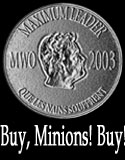The Analphilosopher (p://analphilosopher.blogspot.com/)
Has a quick reference to:
Dale Jamieson on Beef Addiction
The addiction to beef that is characteristic of people in the industrialised countries is not only a moral atrocity for animals but also causes health problems for consumers, reduces grain supplies for the poor, precipitates social divisions in developing countries, contributes to climate change, leads to the conversion of forests to pasture lands, is a causal factor in overgrazing, and is implicated in the destruction of native plants and animals. If there is one issue on which animal liberationists and environmentalists should speak with a single voice it is on this issue.
(Dale Jamieson, “Animal Liberation Is an Environmental Ethic,” Environmental Values 7 [February 1998]: 41-57, at 46)
Now, the humble Smallholder is by no means a trained philosopher and makes no claims about his ability to construct a flawless logic proof, but it seems to me that Dr. Jamieson‚ÄövÑv¥s argument is flawed. He may have more evidence supporting his position (I clicked on Analphilosopher‚ÄövÑv¥s link, but there was no longer version of the argument on Jamieson‚ÄövÑv¥s page), but as it stands, this paragraph fails to convince.
Jamieson lists a variety of problems that result from American and European meat-rich diets. All true ‚ÄövÑv=nuff. He then makes the logic leap I can‚ÄövÑv¥t follow: environmentalists should support the animal liberationist agenda.
The flaw, I would argue, is that consumption of beef does not necessarily result in health problems, hunger, social division, climate change, destruction of forest, overgrazing, and the destruction of plant and animals (Let‚ÄövÑv¥s add erosion to the list as well, shall we?). These problems arise from the METHOD by which industrial countries produce beef.
As an environmentalist, I would like to rectify all of those problems, but eliminating beef from our diet is not necessary. We should instead argue for a shift to production of beef through rotational grazing on marginal crop lands. And then our problems are, if I may paraphrase Mr. Kent (http://www.imdb.com/title/tt0114814/), ‚ÄövÑv
Many of the health problems associated with beef are the result of the fat content. The high marbling of fat that the American consumer has been trained to seek is not natural; it is instead the result of force-feeding grain to captive animals. Grass-fed beef is much leaner and healthier. If we shifted away from the economies of scale and ended the corn subsidies that promote grain feeding, the economics of production would change as well. Grass fed beef is more expensive ‚ÄövÑv¨ a higher price (Google grass-fed beef and you will find prices from $4-$7/lb hanging weight for bulk purchases and considerably higher for smaller sets of meat) would lead to falling demand and we would see people eating smaller quantities of leaner beef. Of course, a shift away from feedlots would also dramatically reduce the suffering of steers bound for the dinner table. While I agree that minimizing suffering is a good thing, I am not prepared to join the animal liberationists in making the leap to attributing moral standing to our livestock.
I often here the complaint that meat-rich diets take grain off the plates of poor people. The production of meat vie grain is remarkably inefficient; it takes about ten to twenty pounds of grain to produce one pound of beef, depending on cattle breed, age, genetics, and environmental conditions. If no cattle were fed grain, the grain itself would not be produced. Corn and other grains are heavily subsidized in America; without the livestock market, it would become an even more unprofitable crop and farmers, being rational workers, would shift production away from grain. So the grain that animals consume would not necessarily go to the poor kid in Somalia anyway. I would like to see an end to the subsidies since that would result in decreased prodiction, causing a rise in grain prices and a resulting unprofitability in feedlot operations.
Furthermore, for ‚ÄövÑv marginal‚ÄövÑvp areas that are currently assigned to grazing, removing livestock would result in a net loss of calories available for human consumption. Hillsides are hard to till and plant. If they weren‚ÄövÑv¥t grazed, the grassland plants would remain inedible. One of the miracle of the cow or the sheep is that they turn energy undigestible to humans into a product we can eat.
The destruction of forest lands are a harder problem to overcome. The loss of the rain forest and other biozones happens in the third world and is less associated with our high meat consumption than one might think. But even if we turned away from beef, those forests and jungles will still be slashed and burned. Hungry poor people want to feed their families and will hack farms of one kind or another out of the wilderness. The real solution to habitat loss in not going to be found in changing yuppie dining habits. We need to control population growth. The same goes for overgrazing. The expansion of the Sahara into the sahel is cause by overpopulation, not what you ate last night. The people herding goats on the outskirts of Africa‚ÄövÑv¥s great desert are not producing meat for the international market; they are trying to feed their children.
Erosion and the reduction of plant diversity in this country is directly caused by monoculture production of grains for animal consumption. Shifting to a more sustainable agricultural model featuring grass-fed beef will solve both problems. Instead of leaving hillsides bare between cornstalks vulnerable to wind and rain, a solid pasture sod will hold the soil in place. If we rotationally graze, cattle will not overgraze each area and will not favor one species over another. A well-managed pasture sward that is grazed one day of thirty will be healthier, stronger, more diverse, and do a better job of erosion control than a swath of grassland left to natural development. Additionally, if graziers do their jobs well, very little in the way of petrochemicals will be used ‚ÄövÑv¨ for either chemical fertilization or tractor fuel. A mob of cattle grazing for short periods of time will spread natural fertilizer pretty evenly around the paddock. We won‚ÄövÑv¥t need to spray our grain crops with herbicides and pesticides. We won‚ÄövÑv¥t need to plant or harvest with machinery.
In short, I think Jamieson is much mistaken when he assumes that there is a natural alliance between environmentalists and aninmal liberationists.
Disclosure:
Smallholder is a farmer who custom-raises humanely treated, drug-free, grassfed beef. I‚ÄövÑv¥d add organic too, but I can‚ÄövÑv¥t afford the multi-thousand dollar expense of being ‚ÄövÑv certified‚ÄövÑvp organic, even if I meet all the requirements. Right now my market is people who care about their meat‚ÄövÑv¥s quality and animal welfare. I don‚ÄövÑv¥t have to be much of a salesman. I sold my last calf last week when the local paper ran a story about the high herbicide concentration in supermarket beef and two coworkers turned to me and said ‚ÄövÑv don‚ÄövÑv¥t you raise beef? I would like to see an overall shift to my style of production not because it would benefit me directly, but because it would lead to improved environmental conditions, healthier Americans, and a healthier rural economy focused on family farms.
The current large-scale grain-fed beef production marginalizes the family farm that cannot keep up with the economies of scale and the ruthless logic of the marketplace. If we moved to pasture production, the center of the farm operation would be the farmer‚ÄövÑv¥s knowledge and skill, not the effective use of borrowed capital.
Two good books that call for a change in American agriculture are:
Salad Bar Beef by Joel Salatin:
http://www.amazon.com/exec/obidos/tg/detail/-/096381091X/qid=1075742300/sr=1-4/ref=sr_1_4/104-0319984-6563958?v=glance&s=books
This is more than an agricultural how-to manual. Salatin has developed an entire philosophy of farming that values the environment, farm families, and consumers.
The Contrary Farmer by Gene Logsdon:
http://www.amazon.com/exec/obidos/tg/detail/-/0930031741/qid=1075742387/sr=1-2/ref=sr_1_2/104-0319984-6563958?v=glance&s=books
Logsdon reflects on the impact of industrial farming on the environment and rural communities.


